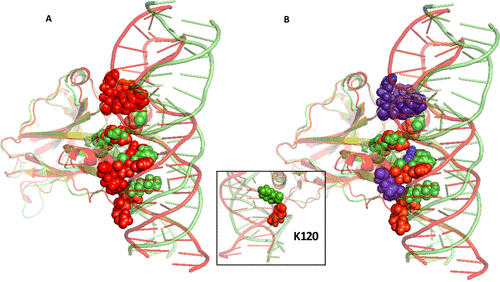Our Research:
-
The p53 Protein:
The p53 Protein Tumor Suppressor is a vital mediator of cell-cycle homeostasis in mammals, and its activity is largely modulated by allosteric factors such as missense mutations, post-translational modifications, and antibody recognition. Disruption in normal p53 function can lead to fatal consequences, and mutations in p53 occur in over 50% of all human cancers.
-
Markov State Models (MSMs):
Markov State Models are a framework that analyze and organize data to effectively understand molecular dynamic (MD) simulations. Markov State Models assist research and are able to identify the desired active conformational substates, and the vector tensors will point out the effects the mutant p53 drug restores to a functional conformation.
-
Y220C Mutation Restoration by PK11000:
The p53 Y220C mutation restoration by PK11000 is a compound experimentally shown to reactivate p53 native function in Y220C mutant present tumors. The Y220C mutation is the ninth most frequent p53 missense mutant accounting for over 100,000 new breast and ovarian cancer cases per year worldwide. The only known allosteric effector, PK1100, that rescues p53 Y220c mutant present a fitting example of an allosteric modulation at work via mutational disruption and allosteric rescue.
-
Why is Our Research Important?
By studying the p53 Protein and understanding how it affects the human body brings us one step closer to curing certain types of cancer. Through p53 study, our lab may be able to save lives through our research. By researching the p53 protein we can develop life saving drugs that combat diseases involving protein regulation.
